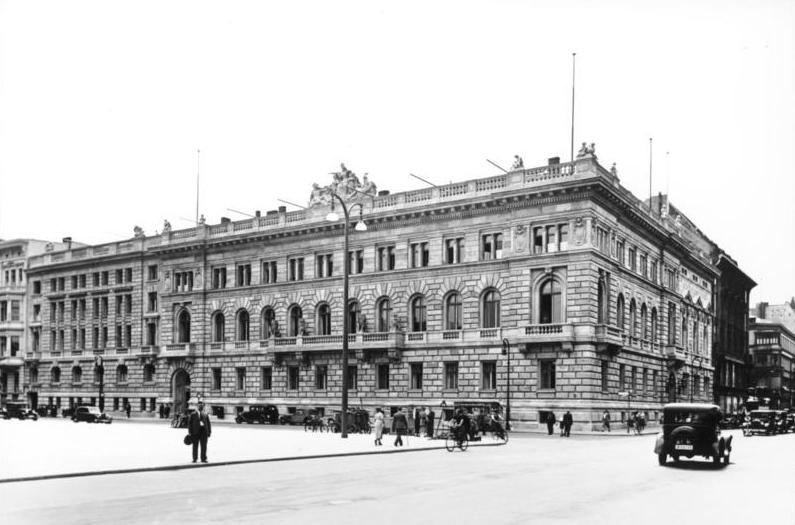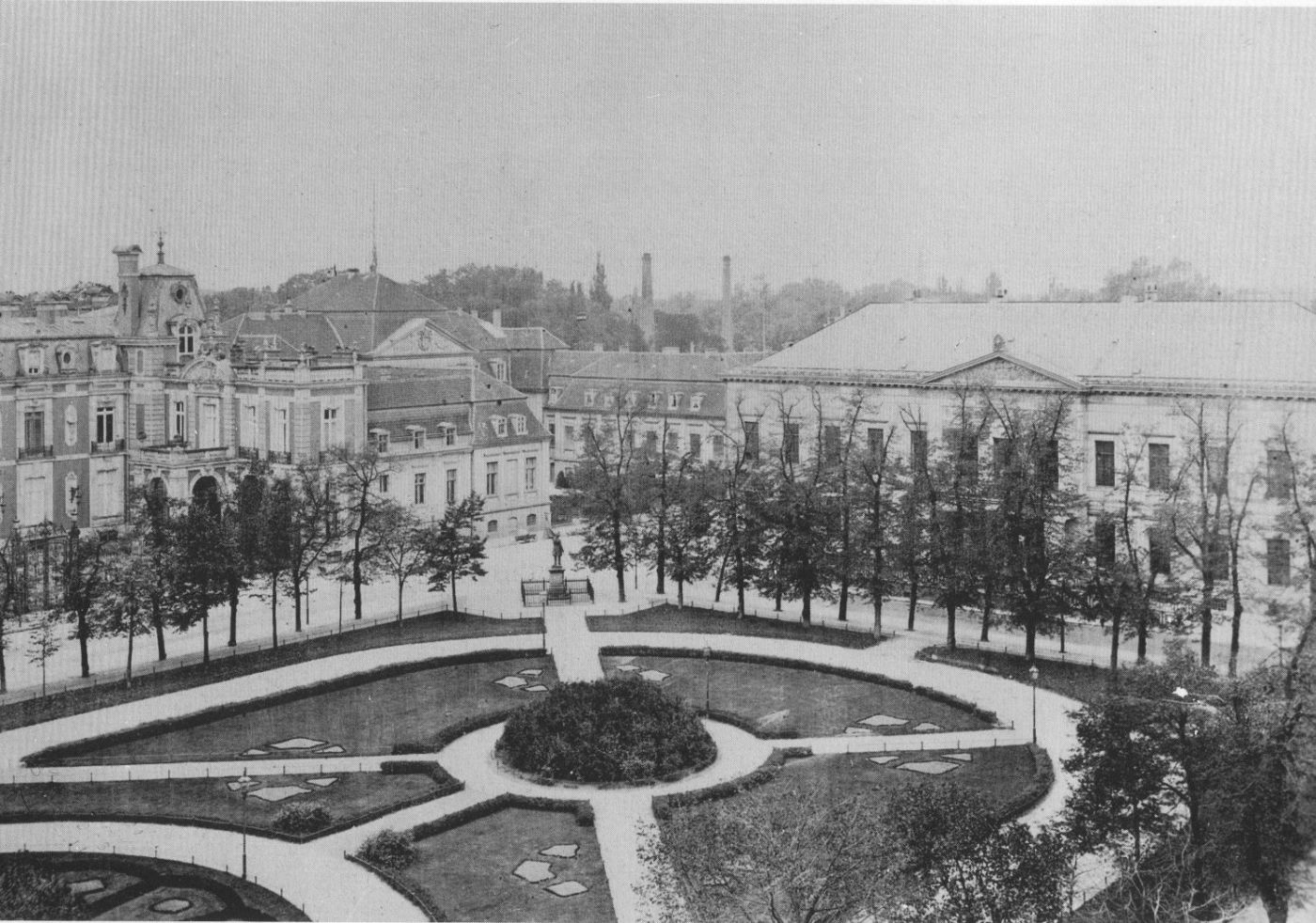|
Federal Minister Of Finance (Germany)
The Federal Ministry of Finance (german: Bundesministerium der Finanzen), abbreviated BMF, is the German Cabinet, cabinet-level Finance minister, finance ministry of Germany, with its seat at the Detlev-Rohwedder-Haus in Berlin and a secondary office in Bonn. The current Federal Minister of Finance is Christian Lindner (Free Democratic Party (Germany), FDP). History In Politics of Germany, German politics, the Ministry of Finance beside the Federal Ministry of the Interior (Germany), Interior, Foreign Office (Germany), Foreign, Federal Ministry of Justice (Germany), Justice and Federal Ministry of Defence (Germany), Defence ministries is counted as one of the "classical portfolios" (denoted by the definite article ''der''), which were also part of the first German government under Otto von Bismarck following the Unification of Germany, Unification of 1871. Fiscal policy in the German Empire was predominantly the domain of the various States of the German Empire (1871), states re ... [...More Info...] [...Related Items...] OR: [Wikipedia] [Google] [Baidu] |
Detlev-Rohwedder-Haus
The Detlev-Rohwedder-Haus (Detlev Rohwedder House) is a building in Berlin that, at the time of its construction, was the largest office building in Europe. It was constructed between February 1935 and August 1936 to house the German Ministry of Aviation ( - RLM), headed by Hermann Göring, a leading Nazi. During the German Democratic Republic (East Germany) it was known as the ("House of Ministries"). In 1992, it was named the ''Detlev Rohwedder Building'', in honour of Detlev Karsten Rohwedder, the former President of the Treuhand, which had its headquarters there 1991–1995, who was assassinated by far-left terrorist group Red Army Faction in 1991. Since 1999, the building has been the seat of the German Finance Ministry. Design and construction The building was designed by Ernst Sagebiel, who rebuilt Tempelhof Airport on a similarly gigantic scale. One writer has described it as "in the typical style of National Socialist intimidation architecture." It ran for more ... [...More Info...] [...Related Items...] OR: [Wikipedia] [Google] [Baidu] |
Federal Ministry Of Defence (Germany)
The Federal Ministry of Defence (german: Bundesministerium der Verteidigung, ), abbreviated BMVg, is a top-level federal agency, headed by the Federal Minister of Defence as a member of the Cabinet of Germany. The ministry is headquartered at the Hardthöhe district in Bonn and has a second office in the ''Bendlerblock'' building in Berlin. According to Article 65a of the German Constitution (''Grundgesetz)'', the Federal Minister of Defence is Commander-in-chief of the ''Bundeswehr'', the German armed forces, with around 265,019 active soldiers and civilians. Article 115b decrees that in the state of defence, declared by the Bundestag with consent of the Bundesrat, the command in chief passes to the Chancellor. The ministry currently has approximately 3,730 employees. Of these, 3,230 work in Bonn while around 500 work in the ''Bendlerblock'' building in Berlin. Organization On April 1, 2012, the Federal Ministry of Defence (DEU MOD) changes its organization to the follow ... [...More Info...] [...Related Items...] OR: [Wikipedia] [Google] [Baidu] |
Franz Von Papen
Franz Joseph Hermann Michael Maria von Papen, Erbsälzer zu Werl und Neuwerk (; 29 October 18792 May 1969) was a German conservative politician, diplomat, Prussian nobleman and General Staff officer. He served as the chancellor of Germany in 1932, and then as the vice-chancellor under Adolf Hitler from 1933 to 1934. Born into a wealthy family of Westphalian Catholic aristocrats, Papen served in the Prussian Army from 1898 onward and was trained as a German General Staff officer. He served as military attaché in Mexico and the United States from 1913 to 1915, organising acts of sabotage in the United States and financing Mexican forces in the Mexican Revolution. After being expelled from the United States in 1915, he served as a battalion commander on the Western Front of World War I and finished his war service in the Middle Eastern theatre as a lieutenant colonel. Appointed chancellor in 1932 by President Paul von Hindenburg, Papen ruled by presidential decree. He ... [...More Info...] [...Related Items...] OR: [Wikipedia] [Google] [Baidu] |
World War I Reparations
Following the ratification of article 231 of the Treaty of Versailles at the conclusion of World War I, the Central Powers were made to give war reparations to the Allied Powers. Each of the defeated powers was required to make payments in either cash or kind. Because of the financial situation in Austria, Hungary, and Turkey after the war, few to no reparations were paid and the requirements for reparations were cancelled. Bulgaria, having paid only a fraction of what was required, saw its reparation figure reduced and then cancelled. Historians have recognized the German requirement to pay reparations as the "chief battleground of the post-war era" and "the focus of the power struggle between France and Germany over whether the Versailles Treaty was to be enforced or revised." The Treaty of Versailles (signed in 1919) and the 1921 London Schedule of Payments required Germany to pay 132 billion gold marks ll values are contemporary, unless otherwise stated in reparations ... [...More Info...] [...Related Items...] OR: [Wikipedia] [Google] [Baidu] |
Weimar Republic
The Weimar Republic (german: link=no, Weimarer Republik ), officially named the German Reich, was the government of Germany from 1918 to 1933, during which it was a constitutional federal republic for the first time in history; hence it is also referred to, and unofficially proclaimed itself, as the German Republic (german: Deutsche Republik, link=no, label=none). The state's informal name is derived from the city of Weimar, which hosted the constituent assembly that established its government. In English, the republic was usually simply called "Germany", with "Weimar Republic" (a term introduced by Adolf Hitler in 1929) not commonly used until the 1930s. Following the devastation of the First World War (1914–1918), Germany was exhausted and sued for peace in desperate circumstances. Awareness of imminent defeat sparked a revolution, the abdication of Kaiser Wilhelm II, formal surrender to the Allies, and the proclamation of the Weimar Republic on 9 November 1918. In its i ... [...More Info...] [...Related Items...] OR: [Wikipedia] [Google] [Baidu] |
World War I
World War I (28 July 1914 11 November 1918), often abbreviated as WWI, was one of the deadliest global conflicts in history. Belligerents included much of Europe, the Russian Empire, the United States, and the Ottoman Empire, with fighting occurring throughout Europe, the Middle East, Africa, the Pacific, and parts of Asia. An estimated 9 million soldiers were killed in combat, plus another 23 million wounded, while 5 million civilians died as a result of military action, hunger, and disease. Millions more died in genocides within the Ottoman Empire and in the 1918 influenza pandemic, which was exacerbated by the movement of combatants during the war. Prior to 1914, the European great powers were divided between the Triple Entente (comprising France, Russia, and Britain) and the Triple Alliance (containing Germany, Austria-Hungary, and Italy). Tensions in the Balkans came to a head on 28 June 1914, following the assassination of Archduke Franz Ferdin ... [...More Info...] [...Related Items...] OR: [Wikipedia] [Google] [Baidu] |
Wilhelmplatz
Wilhelmplatz was a square in the Mitte district of Berlin, at the corner of Wilhelmstrasse and Voßstraße. The square also gave its name to a Berlin U-Bahn station which has since been renamed Mohrenstraße. A number of notable buildings were constructed around the square, including the old Reich Chancellery (former Palais Schulenburg), the building of the Ministry of Finance and the ''Kaiserhof'' grand hotel built in 1875. Wilhelmplatz in the 18th century Location of the Square The square was originally laid out in 1721 over the course of the Friedrichstadt expansion and obtained the name Wilhelmplatz in 1749, after King Frederick William I of Prussia. Engineer and chairman of the state building commission Christian Reinhold von Derschau led the project. He was advised by the King's senior and court building directors, Johann Phillipp Gerlach and Johann Friedrich Grael, respectively, who were in charge of the architectural design. Under their influence, the building commissi ... [...More Info...] [...Related Items...] OR: [Wikipedia] [Google] [Baidu] |
German Chancellery
The German Chancellery (german: Bundeskanzleramt, , more faithfully translated as ''Federal Chancellery'' or ''Office of the Federal Chancellor'') is an agency serving the executive office of the chancellor of Germany, the head of the federal government, currently Olaf Scholz. The Chancellery's primary function is to assist the chancellor in coordinating the activities of the federal government. The head of the Chancellery () holds the rank of either a Secretary of State () or a Federal Minister (), currently held by Wolfgang Schmidt. The headquarters of the German Chancellery is at the Federal Chancellery building in Berlin, which is the largest government headquarters in the world. History When the North German Confederation was created in 1867, the constitution mentioned only the ''Bundeskanzler'' as the responsible executive officer. There was no collegial government with ministers. Federal Chancellor Otto von Bismarck in the beginning only established a ''Bundeskanzl ... [...More Info...] [...Related Items...] OR: [Wikipedia] [Google] [Baidu] |
Zollverein
The (), or German Customs Union, was a coalition of German states formed to manage tariffs and economic policies within their territories. Organized by the 1833 treaties, it formally started on 1 January 1834. However, its foundations had been in development from 1818 with the creation of a variety of custom unions among the German states. By 1866, the included most of the German states. The Zollverein was not part of the German Confederation (1815-1866). The foundation of the was the first instance in history in which independent states consummated a full economic union without the simultaneous creation of a political federation or union. Prussia was the primary driver behind the creation of the customs union. Austria was excluded from the because of its highly protectionist trade policy, the unwillingness to split its customs territory into the separate Austrian, Hungarian and Galician-Lodomerian ones, as well as due to opposition of Prince von Metternich to the idea. ... [...More Info...] [...Related Items...] OR: [Wikipedia] [Google] [Baidu] |
States Of The German Empire (1871)
The German Empire consisted of 25 constituent states and an Imperial Territory, the largest of which was Prussia. These states, or ''Staaten'' (or ''Bundesstaaten'', i.e. federal states, a name derived from the previous North German Confederation; they became known as ''Länder'' during the Weimar Republic) each had votes in the Bundesrat, which gave them representation at a federal level. Several of these states had gained sovereignty following the dissolution of the Holy Roman Empire. Others were created as sovereign states after the Congress of Vienna in 1815. Territories were not necessarily contiguous, such as Bavaria, or Oldenburg—many existed in several parts (enclaves and exclaves), as a result of historical acquisitions, or, in several cases, divisions of the ruling family trees. Kingdoms *Kingdom of Bavaria *Kingdom of Prussia (itself subdivided into provinces; including the Duchy of Saxe-Lauenburg ruled in personal union until annexed 1 July 1876) *Kingdom of Saxony ... [...More Info...] [...Related Items...] OR: [Wikipedia] [Google] [Baidu] |
German Empire
The German Empire (),Herbert Tuttle wrote in September 1881 that the term "Reich" does not literally connote an empire as has been commonly assumed by English-speaking people. The term literally denotes an empire – particularly a hereditary empire led by an emperor, although has been used in German to denote the Roman Empire because it had a weak hereditary tradition. In the case of the German Empire, the official name was , which is properly translated as "German Empire" because the official position of head of state in the constitution of the German Empire was officially a "presidency" of a confederation of German states led by the King of Prussia who would assume "the title of German Emperor" as referring to the German people, but was not emperor of Germany as in an emperor of a state. –The German Empire" ''Harper's New Monthly Magazine''. vol. 63, issue 376, pp. 591–603; here p. 593. also referred to as Imperial Germany, the Second Reich, as well as simply Germany, ... [...More Info...] [...Related Items...] OR: [Wikipedia] [Google] [Baidu] |





